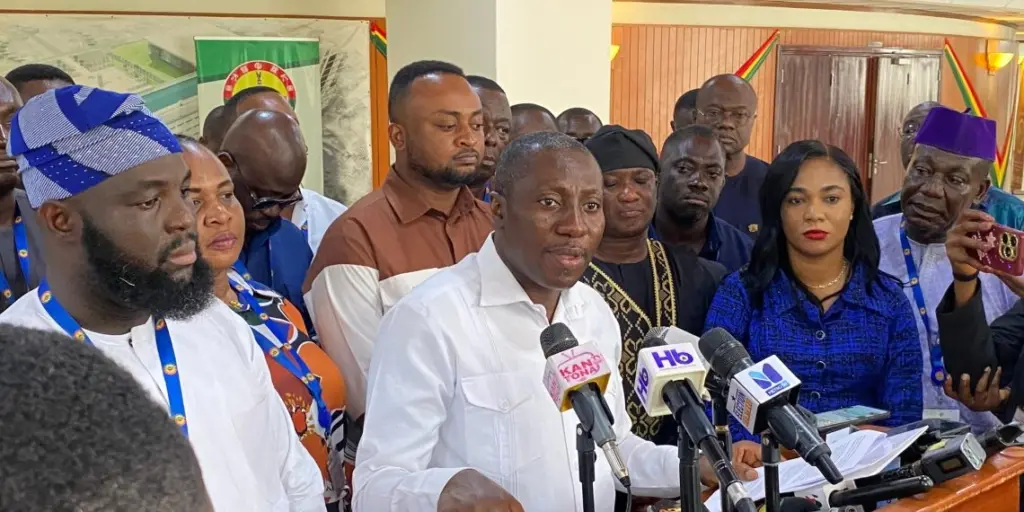The Minority Leader in Parliament, Alexander Afenyo-Markin, has raised strong concerns about what he described as a growing pattern of intimidation, politically motivated arrests, and shrinking civic space in Ghana’s democratic environment.
Speaking on the floor of Parliament as the House resume sitting for the Third Meeting of the First Session of the Ninth Parliament on Tuesday, October 21, Mr. Afenyo-Markin criticized what he termed as selective justice and the increasing harassment of citizens, journalists, and opposition figures.
“Governance is about upholding freedom, justice, and the rule of law, the frequent arrests of opposition members, critics, journalists, and ordinary citizens on flimsy and politically motivated charges exemplify a pattern of harassment intended to silence dissent,” he said.
According to the Minority Leader, recent incidents involving the arrest and prosecution of young Ghanaians for expressing their views on social media reveal a troubling trend toward intolerance.
He cited the case of a young man known online as Kwame Nkrumah Number Two, who was reportedly arrested, prosecuted, and sentenced to seven months in prison following a live stream critical of the government.
“Much as the law must be applied, we must ask, is the state equally swift when government-affiliated individuals commit similar or worse infractions?” Mr. Afenyo-Markin questioned.
He contrasted the case with that of the National Democratic Congress (NDC) National Vice Chairman, Chief Sofo Azoka, who allegedly made a threatening comment ahead of a by-election at Akwatia but has not faced police action.
He emphasizing the need for consistency and fairness in the administration of justice.
The Minority Leader also referenced the arrest of the Bono Regional Chairman of the New Patriotic Party (NPP), Kwame Baffoe Abronye, popularly known as Abronye DC, on what he described as “politically motivated” charges.
According to Mr. Afenyo-Markin, the judge presiding over Abronye’s case quoted George Orwell’s Animal Farm and referenced former Zimbabwean President Robert Mugabe’s famous line: “I can assure you of freedom of speech, but I cannot assure you of freedom after speech.”
“These remarks, coming from the bench, convey an unsettling message that equality before the law and freedom of expression may no longer be treated as fundamental rights, but as privileges subject to interpretation and power,” he cautioned.
Mr. Afenyo-Markin warned that if such tendencies continue unchecked, they could set a worrying precedent for democratic governance and judicial independence in Ghana.
The Minority, he stressed, will continue to hold government accountable to ensure that the rule of law and fundamental freedoms are respected and upheld.




















